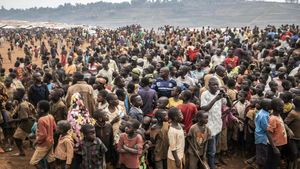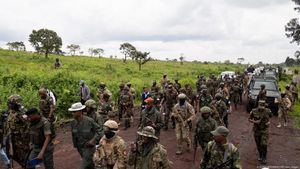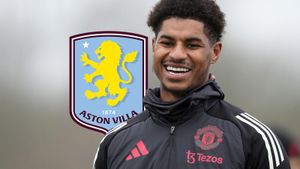On Saturday, February 1, 2025, London braced itself for significant protests revolving around the controversial figure Tommy Robinson, also known as Stephen Yaxley-Lennon. Two opposing demonstrations are set to take place, highlighting the city's division over issues of race and free speech. Activists from disparate groups aim to express their views, each side drawing attention to different aspects of Robinson’s actions and their repercussions on society.
Supporters of Robinson will gather under the banner of "Stop the Isolation" or "Unite the Kingdom," starting at midday on Sandell Street and Cornwall Road, just off Waterloo Road, outside Waterloo Station. Following the rally, they will march to Parliament Street, ending at Whitehall, where they seek to deliver their message directly to the establishment. According to social media posts from Robinson's supporters, they plan to highlight what they describe as the political imprisonment of Robinson, whose recent incarceration has been the catalyst for these protests. "We will proceed to Downing Street. Stand against the isolation of Tommy Robinson. Deliver our message to the establishment," read one message shared on X (formerly Twitter) by Robinson himself.
Conversely, the counter-protest organized by Stand Up to Racism will assemble starting at 11:30 AM on St James’s Street, south of Piccadilly Circus, with plans to march toward Whitehall and Trafalgar Square. Weyman Bennett, co-convenor of Stand Up to Racism, emphasized the importance of mobilizing against far-right ideologies: "We must bring the anti-racist spirit onto the streets of London and reject the politics of hate,” he asserted, channeling sentiments shared by many concerned about the growing influence of extremist views.
The atmosphere leading up to these protests is laden with apprehension, particularly among Black and minority ethnic communities. Diane Abbott, the MP for Hackney North and Stoke Newington, voiced her concerns, stating, "Racist attacks increase when the far right is active and marching on the streets. This is particularly worrying following recent attacks on mosques in London.” Her sentiments reflect fears about societal safety as the protests coincide with the upcoming Chinese New Year celebrations, adding to community tensions.
Robinson's supporters have cited their grievances as being rooted in what they perceive as unfair treatment by law enforcement and the legal system. Robinson has been serving an 18-month prison sentence since October 2023, imposed after he breached court injunctions meant to protect the dignity of individuals, particularly Syrian refugees. He admitted to ten breaches of the injunctions, which have ignited anger among his supporters, who see his legal troubles as emblematic of broader issues of free speech and political persecution.
Aside from political issues, the protests have also sparked worry within the Muslim community. Mohammed Kozbar, Chairman of the Finsbury Park Mosque, noted, "Muslim communities are deeply concerned about potential attacks on mosques this Saturday. The far right are trying to spread fear, division, and Islamophobia.” These comments encapsulate the anxiety felt within communities who historically face increased vulnerabilities during periods of heightened far-right activism.
The Metropolitan Police have announced they will deploy numerous officers to maintain peace between the two groups, seeking to avert clashes. Commander Louise Puddefoot, overseeing the policing operation, confirmed, "We are well prepared for these protests, having been in discussions with both sets of organizers. Our assessment for the protest, based on the information available, is the additional level of preparedness is required.” The police presence aims to facilitate peaceful protests for all involved without inciting disorder, underlining their commitment to public safety.
Authorities have stressed adherence to the Public Order Act, putting measures in place to prevent disruption or violence. Commander Puddefoot assured the public of their intent to respond swiftly to any potential flare-ups, noting the varying roles of police officers depending on the circumstances on the ground but underscoring their mandate is to protect the rights of all parties involved.
Both sides of the protest represent broader social narratives currently engaging the United Kingdom, particularly around themes of race, immigration, and identity politics. It is evident the demonstrations will serve not only as platforms for expressing grievances and solidarity but will also draw attention to the persisting societal divides and the growing imperative for dialogue and recognition of Britain’s multicultural fabric.
With the backdrop of increasing tension and public concern surrounding racial relations, the events on February 1 will likely resonate beyond the immediate protests. Activists and commentators alike will be watching closely to see whether these demonstrations exacerbate existing divisions or contribute to fostering greater community cohesion and mutual respect.



